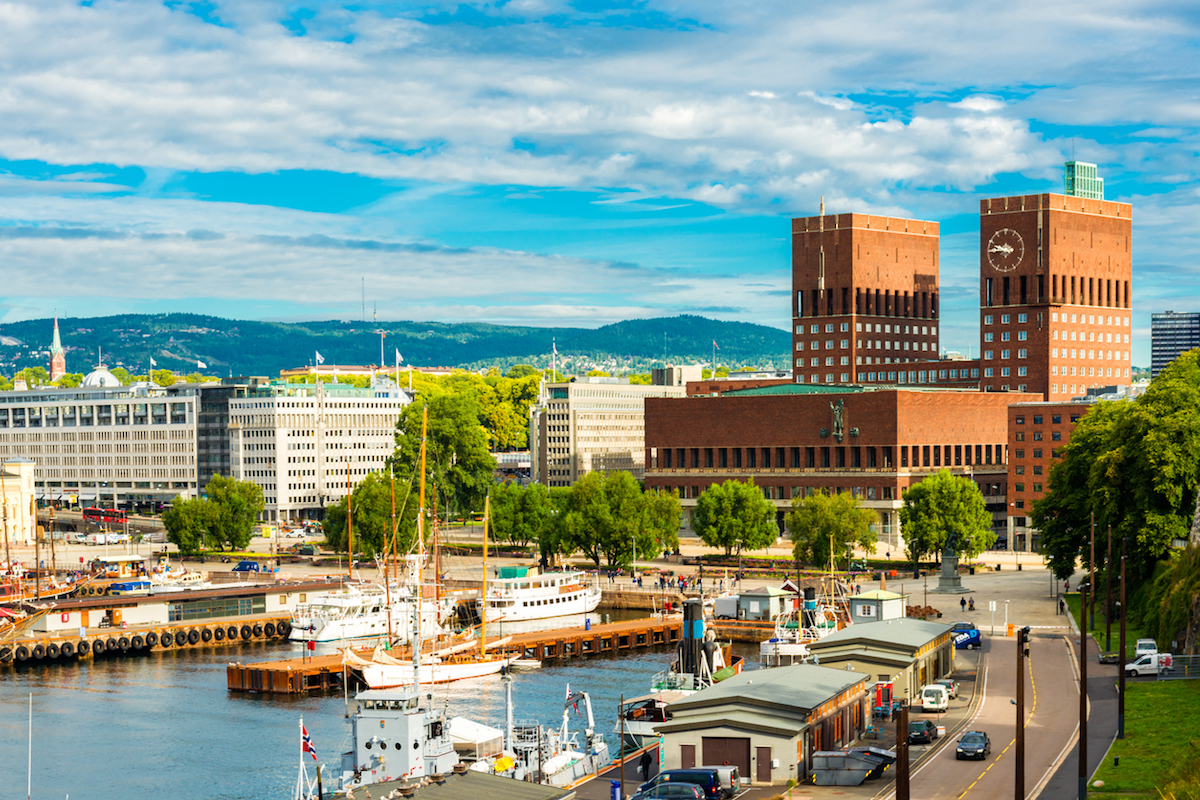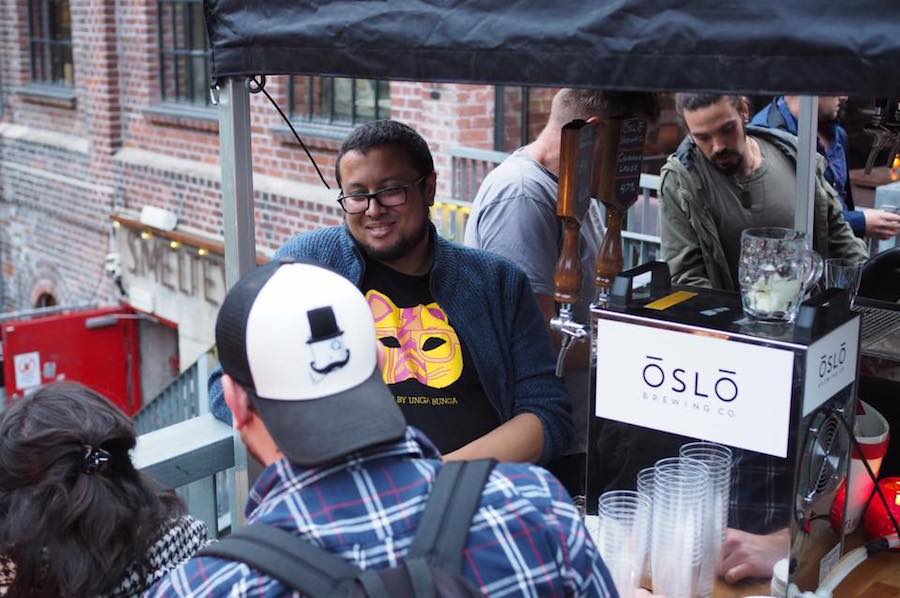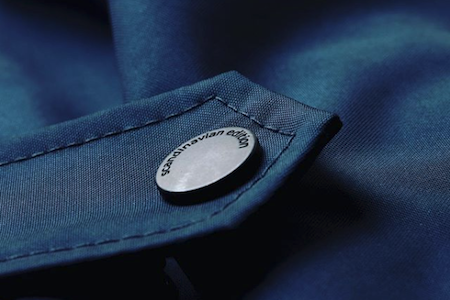Leadership & Strategy
Article
Countries in focus: The sharing culture of Norwegian businesses helps them punch above their weight

When most people think of Norway the sight of deep fjords, the Northern Lights and long summer days might come to mind. But Norwegian businesses are blazing a trail on the economic front.
A country that has historically decided to go it alone, voting in 1994 against European Union membership, Norway has been afforded the luxury of abundant natural resources for support – assets which have allowed it to build a sovereign wealth fund worth $1tn.
Its productivity score places it firmly in the top three globally, but what is it about the way businesses operate that means such a small nation can punch above its own weight so effectively? Be the Business spoke to four Norwegian businesses to dig a little deeper.
Vital statistics:
- GDP per hour worked (OECD): £39.72 – 2017 (2nd)
- GDP real growth rate: 1.4 per cent – 2017 (178th)
- GDP per capita: $70,600 – 2017 (12th)
- Exports: $102.8bn – 2017 (36th)
- Average work week: 27 hours
For Tom-Erik von Krogh-Martinsen, founder of CHECKD, trust is the key word. “Most people think that the one you are doing business with is honest.” He also touched on the benefit of the country’s affluent position, explaining oil money provides Norwegian’s with self-confidence and a safety net of sorts.
“If you screw up, you will still be taken care of. You will lose your Porsche, and your cabin for those that have one, but you’ll still be able to live and take care of your family until you get a new job.”
This was also the view of Oslo Brewing Company co-founder Dimitri Yogaratnam. “Everyone in Norway makes more money, so a team of friends can get together, pool savings and start a business together. If it doesn’t go well it doesn’t break the bank.”
Flat structure
The so-called “Scandinavian Leadership Model” is no more evident than it is in Norway. Dominated by a trust-based approach to the working world, the model features a flat management structure that academics believe motivates staff and drives better productivity.
The Norwegian Business School compares it to the Anglo-American approach to leadership, which is described as often based on authority, by saying Scandinavian leaders are known for encouraging more dialogue and partnership within the organisation. “They see everyone as equal and valuable empowers employees at all levels,” it noted. “A hierarchy would limit the impact that lower ranked employees could have. Employees are able to take part in important decisions, which gives them more ownership to their tasks at hand.”

Yogaratnam, Oslo Brewing Company’s managing director, also feels strongly about the sharing culture and lack of hierarchy displayed by Norwegian businesses. When the brewery business was first being set up back in 2015, two other breweries took full days in their free time to open up the books and them through all their mistakes – guiding their new rivals through how to set up.
“It’s really nice – it’s the Norwegian way. Owner and employee relationships are also very open. When I was working in the US, when my boss was doing badly he kept it to himself. In Norway, owners are very honest in showing results and goals,” Yogaratnam added.
This, he believes, ties workers to their employers more. “When I know the decisions I make can have huge result on business, affecting everyone’s job if I’m irresponsible, it empowers you.”
The business is also taking strides to embrace the flat management structure that has helped other Norwegian companies. “We encourage an open discussion to make company better. You get buy in and that breeds passion.”
Calculated decisions
“Norwegians take a long time to make decisions,” agreed Mari Mathews, the chief operating officer and founding team member of Outtt, a company described on its website as “Airbnb for outdoor adventures”.
“It’s a real contrast the way with North Americans and Brits tend to jump on board a bit quicker. Here it’s a lot more cautious,” Mathews added.
But as unusual as this attitude might seem to someone well versed in a faster-moving US-UK business culture, Mathews can see its advantages. ”Once they’ve made that choice, Norwegians are usually quite committed to it,” she explained.

Eystein Wang, founder of clothing brand Scandinavian Edition, said companies in other countries like the way Norwegian businesses conduct themselves. “We are transparent, open and are not trying to trick anyone. In a way I feel that this gives us a quality stamp. Everything coming out of Norway is considered to be high quality and professional.”
Another trend dominating the productivity discussion is the amount of time staff spent working each week. Expert Market, a business services comparison service, conducts annual analysis of the world’s most (and least) productive countries. It highlighted the working week in Norway and other Scandinavian countries as particularly important to recognise.
“It is no coincidence that Norway, Denmark and Iceland all finish within the top five for productivity, while Sweden and Finland place tenth and 13th respectively. The embodying culture of these nations promotes wellbeing, and it evidently pays off at the office,” said Expert Market researcher Jennifer Pinches.
However, a few of the business leaders we spoke to were quick to split the Norwegian demographic out into two distinct strands – public and private sector workers – which is important to factor in.
“Lots of people in Norway work for state and government and have a totally different attitude when it comes to a work/life balance,” Wang told Be the Business.
“Norwegians are not as efficient as people tend to think. A lot of people work short days, but that is not the case for entrepreneurs.” Those, he added, are people working in bigger corporations and for the government.
These long working week hours, von Krogh-Martinsen believes, do have their positives though. “I think some of us work way too much – your company is like your baby, you do all you can to save it and make it grow. Often this takes too much time from the real family, so it is important to set time aside for them. Weekends are sacred.”
Taking the plunge
At Oslo Brewery Company, Yogaratnam had an interesting example of the approach many Norwegians have when it comes to working for a small, potentially risky, company.
“Our brewer, he had a great job in a bank making good money. In the US we’d never have been able to get that guy – with corporate health benefits and other job security. To jump over to newly-founded brewery with low sales is super risky.
“In Norway, you are pretty safe and can take risks and without it being a big damper on lifestyle. People will take risks on startups where they won’t in other countries.”
For Norwegians who have worked in other countries around the world, the culture and environment make it attractive enough to return to. “I’ve worked a lot in other countries – Africa, Asia, America and all over Europe,” said von Krogh-Martinsen. “I think there are more ‘rules’ in these countries, more levels in management, and a lot of ‘this is just the way it is, we always did it this way’ kind of thinking.”
Whether it’s encouraging a healthy work/life balance or embracing the Scandinavian Leadership Model by actively delegating and building a culture of trust, Norway is showing how a progressive approach to management practices can produce big results.